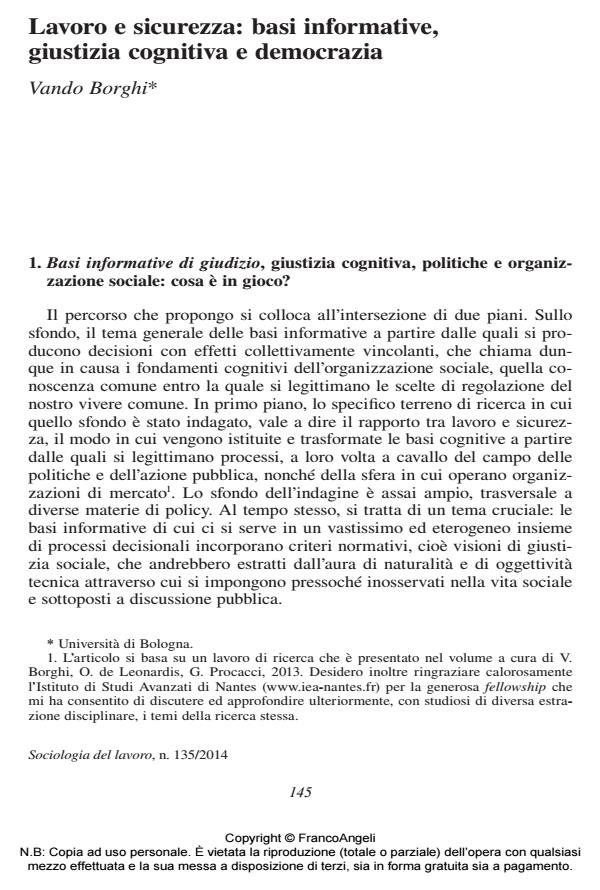Work and safety: informational basis, cognitive justice and democracy
Journal title SOCIOLOGIA DEL LAVORO
Author/s Vando Borghi
Publishing Year 2014 Issue 2014/135
Language Italian Pages 22 P. 145-166 File size 168 KB
DOI 10.3280/SL2014-135009
DOI is like a bar code for intellectual property: to have more infomation
click here
Below, you can see the article first page
If you want to buy this article in PDF format, you can do it, following the instructions to buy download credits

FrancoAngeli is member of Publishers International Linking Association, Inc (PILA), a not-for-profit association which run the CrossRef service enabling links to and from online scholarly content.
The paper works at the intersection of two levels of research. The first one is the more general field addressed through Sen’s concept of informational basis of judgment for justice. After a very short introduction about what does it mean dealing with different matters of policy (labour, social, but also urban, environmental, cultural policies, and so on and so force), the sociological needed revisions and integrations to Sen’s conceptual vocabulary and research practices are discussed. Moreover, the most relevant processes of transformations concerning the informational bases in the context of neoliberal capitalism are briefly explored: a strong torsion toward objectification and quantification; intensified performative hegemony of real abstractions; privatization, both in terms of growing individual responsibility and of private nature of the agencies and devices producing and imposing the dominant informational bases. These processes of informational basis’ change are explored as well - and this is the second level - through an empirical terrain of research, that is the relationship between work and safety. In the situated context of the research’s field (two cases of research are presented), the concrete and specific meaning of those more general processes are exemplified.
Keywords: Informational basis, work, quantification, real abstractions, privatization
Vando Borghi, Lavoro e sicurezza: basi informative, giustizia cognitiva e democrazia in "SOCIOLOGIA DEL LAVORO " 135/2014, pp 145-166, DOI: 10.3280/SL2014-135009